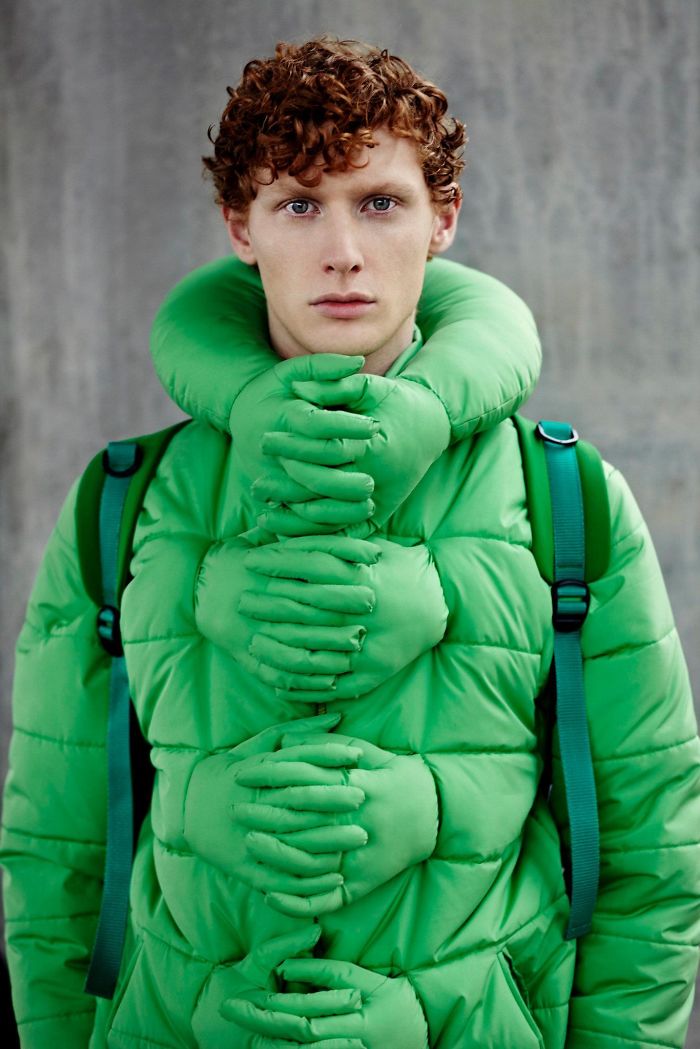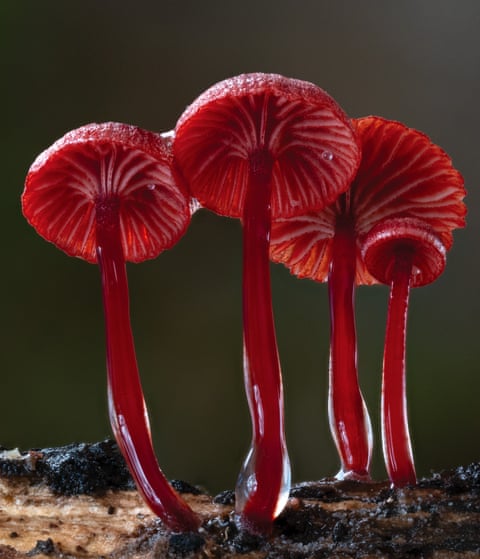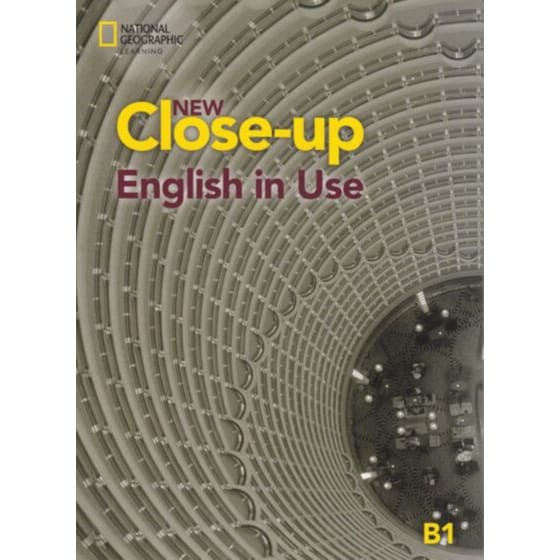Saturday English Language Programme Homework
Jan 31, 2026
classwork on January 31st and homework for February 7th
classwork:
speaking: YouTube videos:
grammar: English in Use–all of unit 12
listening: student’s book–p.76 (video, unit 6)
reading: student’s book–p.79
reading/listening: “Bridge to Terabithia”--chapter 8
writing: reviews--on amusement parks
podcasts: chapters 5-8
homework:
student’s book–p.72 (voc 2, unit 6)
study for progress test 3
Have a great weekend!

Jan 24, 2026
classwork on January 24th and homework for January 31st
classwork:
speaking:TOKYO CAPSULE HOTEL TOUR
4 Roller Coasters That Put the Theme in Theme Park
House of Mirrors – Auckland Arts Festival 2018
It’s Time to Check In at The Twilight Zone Tower of Terror | Walt Disney World Resort
House of Mirrors – Auckland Arts Festival 2018--
grammar: student’s book–p.73 (grm 2)
unit test 5
reading/listening: “Bridge to Terabithia”--chapter 7
homework:
companion–2nd half of unit 6: 6.61--6.123
wkbk–p.38 (grm 2)
English in Use–65-70 (unit 11–grm 1 and 2)
Have a great weekend!

Jan 17, 2026
classwork on January 17th and homework for January 24th
classwork:
grammar: student’s book–p.69 (grm 1)
listening: workbook–p.36 (unit 6)
writing: student’s book–pp.74-75 (essay)
reading: “Bridge to Terabithia”--chapter 6
vocabulary quiz: first half of unit 6
speaking:
Snowboarding
https://video.nationalgeographic.com/video/ng-adventure/fringe-elements/00000144-0a25-d3cb-a96c-7b2d02ae0000https://www.youtube.com/watch?v=hCMhYuk-5tc
homework:
learn the following collocations–
collocations with sports:
http://getmorevocab.com/sports-collocations-do-play-go-practice/
study for unit 5 test
workbook: pp.37
student's book: p.75 (writing--article)
Jan 11, 2026
classwork on January 10th and homework for January 17th
classwork:
grammar: “English in Use", all of unit 9
listening: workbook–p.30 and student’s book–p.70 and Gorgeous Video: Rock Climbing in Oman (National Geographic)
reading: student’s book–pp.66-67
speaking: sports, with pictures
presentations on books
homework:
student’s book: p.68 (voc 1)
companion: first half of unit 6–pp.65,66 and 67
English in Use: pp.59,60,61,62,63 and 64 (unit 10)
workbook: pp.34 and 35 (reading and voc 1) and p.36 (grm 1)

Dec 21, 2025
classwork on December 10th and homework for January 10th
classwork:
vocabulary: quiz on words assigned in companionon and vocabulary exercises on p.60 in student’s book
reading: student's book--pp.54 and 55
grammar: student’s book--p.61
“English in Use”:units 9 and 10
homework:
Choose a book you'd like to read--it can be one you already have or one you want to get from a bookstore--and make a Power Point (if you know how to make one, otherwise you can just write bullet points of what you want to discuss on paper) to present in class. In your presentation, you should give a short summary of the book and discuss the characters and main themes in it.
This is the answer key to the video you did for homework--
Answer Key
|
Question |
Correct Answer |
|
1 |
C |
|
2 |
C |
|
3 |
C |
|
4 |
C |
|
5 |
C |
|
6 |
C |
|
7 |
B |
|
8 |
B |
|
9 |
D |
|
10 |
B |
I wish you all a very Merry Christmas and a Happy New Year!

Dec 13, 2025
classwork on December 13th and homework for December 20th
classwork:
progress test 2
grammar: file:///C:/Users/krisj/Documents/grammar%20exercises%20online%20pre-intermediate%20and%20intermediate/future%20tenses/will_or_be_going_to.pdf
https://test-english.com/grammar-points/a2/will-vs-be-going-to/
listening: student’s book–p.58 and Pastry Chef Decorates a Store-bought Gingerbread House Kit | NYT Cooking
writing: student’s book–pp.62 and 63 (informal email) and "How to Make Your Writing More Suspenseful"--https://www.youtube.com/watch?v=xjKruwAfZWk
speaking: podcasts and houses–Life in a Crazy-Small 8m2 Tokyo Apartment
reading: student’s book–pp.54 and 55
homework:
student’s book–p.56 (voc 1) and p.63, Exam Task
companion–5.1-5.55
workbook–pp.28 and 29 (rdg), p.30 (grm 1)
Watch this video and do the reading comprehension questions below!
Pastry Chef Decorates a Store-bought Gingerbread House Kit | NYT Cooking
https://www.youtube.com/watch?v=z7rn-VmUmSM
1. What is the main goal of the pastry chef, Jason, at the beginning of the video?
A. To follow the instructions for one gingerbread house kit perfectly.
B. To see how fast he can assemble one kit without decorating it.
C. To use pieces from many different kits to build one unique house.
D. To prove that store-bought icing is better than homemade royal icing.
2. What is Jason's job title, according to his introduction in the video?
A. Bavarian Home Builder
B. Pastry Cook
C. Food stylist
D. Icing Expert
3. What tool does the chef use to cut the gingerbread pieces without breaking them?
A. A standard chef’s knife
B. Scissors C.
A serrated knife
D. A pair of wire cutters
4. What is the chef’s go-to plan for decorating a gingerbread house?
A. Assemble the whole house first, then add the roof and icing.
B. Start with the details and candy after the house is fully built.
C. Do as much icing decoration as possible while the pieces are flat on the table.
D. Mix the kit's icing with his own homemade royal icing.
5. When assembling the corners, what does the chef use T-pins for?
A. To add permanent decoration to the walls.
B. To hold up the roof while the frosting dries.
C. To act as temporary structural support for the corners.
D. To measure the length of the gingerbread pieces.
6. How does the chef create the candy window in one of the house pieces?
A. He glues a piece of clear plastic to the back of the window hole.
B. He uses a mix of powdered sugar and water to create a clear pane.
C. By cutting a doorway, filling it with candy, and baking it in the oven.
D. By decorating a clear sheet of gelatin with melted chocolate.
7. What kind of fictional story did the chef invent to explain why his house roof is asymmetrical (not balanced)?
A. The house was built by a famous architect who loved modern art.
B. The family added different additions to the house after the original roof collapsed.
C. He ran out of gingerbread pieces and had to leave one side unfinished.
D. He wanted to show how different cultures build their houses.
8. According to the chef, what is the best way to get a straight line when piping icing?
A. Push the tip of the piping bag down firmly onto the cookie.
B. Hold the piping bag a little bit above the cookie and let the icing fall.
C. Put the gingerbread in the freezer for ten minutes before piping.
D. Use a toothpick to carefully guide the icing line.
9. What type of candy does the chef use to look like 'drifts of snow' around the house?
A. White rock candy
B. White chocolate shavings
C. Marshmallows
D. White gummies
10. What is the final, decorative detail the chef adds to the edges of the roof using royal icing?
A. A chimney with smoke coming out of it.
B. Icicles, by pulling the piping bag straight down.
C. A large sign with the family's name on it.
D. Flower garlands hanging from the eaves.
And here are the answers to last week's videos--
1.Because in nature cats climb to see danger from above and stay safe — it helps them watch their surroundings and feel protected.
2.It means cats had to hunt small animals (predator) but also escape bigger animals (prey). So they jump, hide, run fast, and stay alert — to survive.
3.They scratch to sharpen their claws, mark their territory, and prepare for hunting or protection — it’s a natural survival instinct.
4.Cats can purr not only when happy but also to heal or calm themselves — their purr may help reduce pain and stress or ask humans for food.
5.It means a cat sees your house as its wild territory, full of places to hunt, hide, and climb — like a mini jungle. It helps explain their instinctive behaviour indoors.
6.They scratch to mark territory, stretch their muscles, and maintain their claws. The instinct comes from their wild ancestors, who scratched trees to signal their presence and keep their claws ready for hunting and climbing.
7.Cat purrs vibrate at 25–150 Hz, a frequency range that can stimulate bone and tissue repair. The video suggests purring may help them heal themselves, especially since they spend so much time resting and conserving energy.
8.It means that even though your home is safe and domestic, a cat experiences it the way a wild predator would assess its territory.
The metaphor is used to show that many “weird” cat behaviors—perching, hiding, exploring, hunting toys—come from instincts built for life in a much more dangerous environment.
Have a great weekend!
:max_bytes(150000):strip_icc()/EdenGardenDesignext4_photobyGregThomas.jpg-d60fe4e71dfa460991bba78ab39efea9.jpg)
Dec 8, 2025
classwork on December 6th and homework for December 13th
classwork
grammar: sb–p.57 and English in Use–p.47, exs.8 and 9
listening: sb–p.52 (video)
vocabulary quiz
reading: Terabithia chapter 5 and reading comprehension questions
speaking: podcasts on Bridge to Terabithia
homework:
study for progress test 2 (units 3 and 4)
Watch this video and do the questions that follow–
Why do cats act so weird? - Tony Buffington https://www.youtube.com/watch?v=sI8NsYIyQ2A
1.Do you (or someone you know) have a cat? What is one strange behaviour you’ve seen?
2.What do you think are the main differences between cats and dogs?
3.Have you ever wondered why cats do some of the things they do (e.g., pounce, hide, climb)?
4.According to the video, why do cats show behaviours like climbing to high places? TED-Ed+1
5.The video says cats are both predators and prey in their evolutionary past. How might this explain some of their “weird” actions?
6.Why do cats sharpen their claws on furniture or other surfaces? What instinct is behind this?
7.What is unusual about the purrs of cats, according to the video? What benefit might they have?
8.The video compares a house cat’s home to a jungle. What does this metaphor mean? Why is it used?
9.Do you think understanding a cat’s instincts makes it easier to live with a cat? Why / why not?
10.Many people complain about cats scratching furniture — how might knowing the instinct behind it change how you react?
11.Should cats be allowed outdoors so they can use all their “wild” behaviours, or should they stay indoors for safety? What’s your view?
12.If you had a cat, what environment would you provide so the cat could be mentally and physically stimulated?
13.The video suggests that many cat behaviours are left-over instincts from their ancestors. Do you think humans have similar behaviours from our past that affect us today? Give examples.
14.Would you rather share your home with a cat or a dog (or another pet)? Based on what you
learned, what are the pros and cons of having a cat?
HAVE A GREAT WEEKEND!

Nov 29, 2025
classwork done on November 29th and homework for December 6th
classwork:
grammar: student’s book–p.49 (grm 2)
listening: student’s book–p.52 (video)
reading: Terabithia chapter 5 and questions, podcast on Terabithia, workbook–p.22
speaking: Calvin Klein ad and questions, worked on Terabithia podcasts
writing: student’s book–pp.62 and 63
special: Thanksgiving--British Council exercise, done for extra points!
homework:
student’s book—-p.48 (voc 2)
workbook—-p.25 (voc 2) and p.26 (grm 2)
English in Use—-unit 8/grm 2
companion—-words 4.52 to end

Nov 23, 2025
classwork done on November 22nd and homework for November 29th
classwork:
grammar: extra grammar on defining and non-defining clauses (Perfect English)
listening: student’s book–p.46 and workbook–p.24
reading: student’s book–pp.42 and 43 (rdg)
speaking: finish presentations on Kids and meals
Terabithia: started working on podcasts
homework:
student's book--p.44 (voc 1) and p.51, Exam Task
workbook--p.24 (grm) and p.23 (voc)
English in Use--pp.40,41,42,43--just exercise 7 and p.44
companion--words 4.1–4.52

Nov 15, 2025
classwork on November 15th and homework for November 22nd
classwork:
grammar: student’s book–p.45 (grm 1, unit 4), English in Use–p.39
listening: Terabithia–chapter 4
reading and listening: Terabithia–chapter 4, with audiobook and questions in pairs
speaking: kids and food
writing: pp.50 and 51 (story, unit 4)
homework:
study for unit test 3
The Life Cycle of a Plastic Bottle
watch this video and answer the questions:
https://www.youtube.com/watch?v=_6xlNyWPpB8
1.Where do the plastic bottles, “the heroes of this story,” originate from?
2.Where do bottles end up after the liquid inside them is consumed??
3.How do the toxic substances from garbage end up in streams, ponds, etc.?
4.How long does it take for a plastic bottle to decompose?
5.(2:15)What is the Great Pacific Garbage Patch?
6.How many of these garbage patches are there in the world?
7.How does plastic enter our food chain?
8.What don’t most plastics do?
9.Do you agree with any of the comments that these people posted?


Nov 8, 2025
classwork on November 8th and homework for November 15th
classwork:
grammar: Use–p.33(?), student’s book–p.37 (grm 2) and extra grammar
listening: workbook–p.18 and student’s book–p.34
reading: student’s book–pp.30-31 and finished chapter 3 (from top of p.35) in Terabithia
speaking: Kayak ads
writing: student’s book–pp.38-39
homework:
student’s book–p.36 (voc 2)
workbook–pp.16-17 (rdg) and p.20 (grm 2)
English in Use–unit 6, pp.35,36,37 and 38 (grm 2)
companion–2nd half of unit 3
Have a great weekend!

Nov 1, 2025
classwork on November 1st and homework for November 8th
classwork:
grammar: student’s book–p.33 (grm 1)
progress test 1
listening: student’s book–p.34 and The Addams, put in order cards, in groups
reading: Terabithia–chapter 3 and questions in pairs and student’s book-pp.30-31
speaking: Halloween
homework:
student's book–p.32 (voc 1)
workbook–p.18 (grm 1) and p.19 (voc 1)
English in Use–pp. 29,30,31,32,33--just exercise 7 and p.34 (unit 5, grm 1)
companion–first half of companion, unit 3
HAPPY HALLOWEEN!

Oct 25, 2025
classwork on October 25th and homework for November 1st
classwork:
grammar: Use– p.13, exs.8 and 9 and pp.23-24 and pp.25-28 in unit 4 (to prepare for progress test 1); workbook–p.14 (grm 2)
listening: workbook–pp.12
reading: Terabithia–chapter 2 questions in pairs
writing: student’s book–pp.38 and 39
speaking: food--different cuisines, with pictures (Asian)
homework:
study for progress test 1, which is on both units 1 and 2. So make sure you revise all the vocabulary and grammar in unit 1 also!
student’s book–p.39, Exam Task
English in Use--pp.25,26,27 and 28
HAVE A GREAT WEEKEND! And don't forget, next Saturday we'll be celebrating Halloween, so if you want to come to class in a costume, you're welcome to do so just make sure you don't bring any type of "weapon" or face mask!


Oct 18, 2025
classwork done on October 18th and homework for October 25th
classwork:
grammar: student’s book–p.25 (grm 2) and extra grammar: used to and be used to and get used to (plus "Perfect English")
https://test-english.com/grammar-points/b1/usually-used-to-be-used-to-get-used-to
listening: workbook–p.12 and chapter 2 in “Bridge to Terabithia” Bridge to Terabithia: Ch. 1 & 2 Audioboo
reading: Terabithia–chapter 2
speaking: food–restaurants with pictures, in pairs and 1 group of 3
homework:
companion–unit 2, 2.1-2.73
English in Use--pp.15,16,17,18--just exercise 7, pp.19,20,21 and 22

Oct 11, 2025
classwork done on October 11th and homework for October 18th
classwork:
unit test 1
grammar: sb–p.25 and extra grammar on “would” and “used to”--”grammar exercises online”
reading, listening and speaking: Bridge to Terabithia–chapter 1 (plus: vocabulary in chapter 1 and point of view, background and setting)
homework:
student’s book–p.20 (voc 1), p.24 (voc 2)
workbook–pp.10 and 11 (rdg and voc 1), p.12 (grm 1), p.13 (voc 2)
English in Use–unit 2, all except vocabulary exercises–pp.13, exs.8 and 9
Enjoy your weekend!

Oct 4, 2025
classwork on October 4th and homework for October 11th
Please don't forget to bring both English in Use and Bridge to Terabithia to class next week, and every Saturday from now on!
classwork:
reading: sb–pp.18 and 19: went over
grammar: sb–p.21 and "Perfect English"--Past Simple and Past Continuous, Pearson Pre-Intermediate: p.53, exercises 33a and 33b; p.54, ex.33c
listening: sb–p.22 and p.28 (video)
writing: sb–pp.26 and 27
vocabulary: quizzed, orally
homework:
study for unit 1 test
English in Use: all of unit 1
HAVE A GREAT WEEKEND!

Sep 28, 2025
classwork on September 27th and homework for October 4th
classwork:
grammar: student’s book–p.13 and “Perfect English”--Countable or Uncountable Nouns 1
speaking: “being stranded on a deserted island”, in pairs and professions, individually with pictures
listening: workbook–p.6 and video "Zebrafor a Day"
writing: sb–pp.14 and 15
The Addams Family Goes to School (1/2 of the episode)
homework:
student’s book–p.12
workbook–pp.7 and 8
companion–2nd half of unit 1

Sep 21, 2025
classwork done on September 20 and homework for September 27
Welcome to D class! Looking forward to a very productive and stimulating year!
Please don’t forget to get “English in Use”!

Also, please use the Cambridge English to English dictionary to look up any words you don’t know. I’m including the link here.
https://dictionary.cambridge.org/dictionary/english/perhaps
classwork:
grammar: sb–p.9 (grammar 1), with note-taking and drilling and "Perfect English": "Choose Present Continuous or Present Simple 1"
reading: sb–pp.6 and 7
listening: sb–p.10
speaking: professions and video on the Jeju
writing: student's book--p.15, Exam Task
homework:
student’s book–p.8 (voc 1), p.15, Exam Task (writ)
companion–pp.5-8
workbook–p.4 (rdg), p.5 (voc 1) and p.6 (grm 1)

